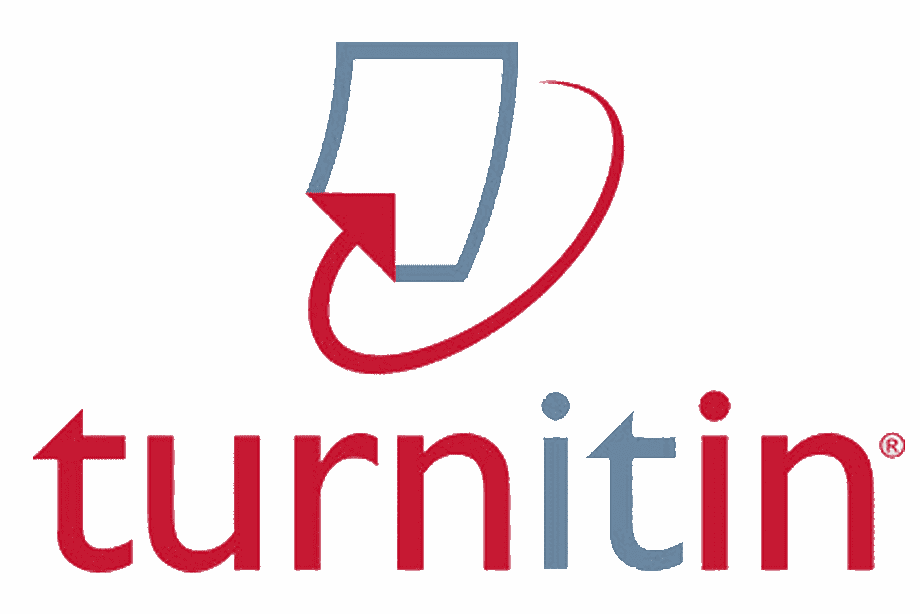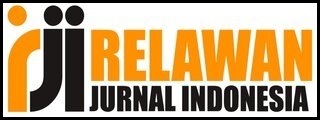Uncovering the Impact of Workload and Burnout on Turnover Intention: The Critical Role of Resilience to Work
Keywords:
Workload, Burnout, Turnover Intention, Resilience to WorkAbstract
The purpose of this study was to determine how workload and burnout affect turnover intention moderated by job security in CV Yusima Teknik employees. The type of research used uses quantitative research. The population of CV Yusima Teknik employees was 37 people in this study. By using sampling techniques using saturated samples, so that the number of samples taken was 37 people. Data analysis in this study using Partial Least Square (PLS version 4.0). The results obtained are workload and burnout significantly positively affect the intention to move at CV Yusima Teknik, but work resilience can weaken this negative impact. And resilience has a significant negative effect on moving intention. The results of this study suggest the need for attention to workload management and burnout to reduce turnover intention in the company. Increasing resilience can also be an effective strategy in reducing the negative impact of workload and burnout on turnover intention.
References
Alam, A., & Asim, M. (2019). Relationship Between Job Satisfaction and Turnover Intention. International Journal of Human Resource Studies, 9(2), 163. https://doi.org/10.5296/ijhrs.v9i2.14618 DOI: https://doi.org/10.5296/ijhrs.v9i2.14618
Agista Ningrum, D., Fauzi, A., Wijayanti, M., & Ekonomi dan Bisnis Universitas Bhayangkara Jakarta Raya Corresponding Author, F. (n.d.). Pengaruh Beban Kerja dan Burnout Terhadap Turnover Intention Karyawan PT Swadaya Jaya Mandiri. In Indonesian Journal of Economics and Strategic Management (IJESM (Vol. 2, Issue 1).
Anees, R. T., Heidler, P., Cavaliere, L. P. L., & Nordin, N. A. (2021). Brain Drain in Higher Education. The Impact of Job Stress and Workload on Turnover Intention and the Mediating Role of Job Satisfaction at Universities. European Journal of Business and Management Research, 6(3), 1-8. https://doi.org/10.24018/ejbmr.2021.6.3.849 DOI: https://doi.org/10.24018/ejbmr.2021.6.3.849
Astuti, H. Y., Ismail, S., & Johan, A. (2022). Nurses' Resilience During Covid-19 Pandemic: A Scoping Review. International Journal of Nursing and Health Services (IJNHS), 5(1), 88-95. https://doi.org/10.35654/ijnhs.v5i1.566 DOI: https://doi.org/10.35654/ijnhs.v5i1.566
Ayu Widati, M., & Muafi. (2020). Analisis Pengaruh Makna Kerja dan Resiliensi Terhadap Intention to Leave yang Dimediasi Oleh Kepuasan Kerja (Vol. 11, Issue 2). https://journal.umy.ac.id/index.php/bti/index DOI: https://doi.org/10.18196/bti.112137
Badran, M. A., & Youssef-Morgan, C. M. (2020). Psychological Capital and Job Satisfaction in Egypt: The Role of Resilience. International Journal of Workplace Health Management, 13(5), 509-531.
Bautista, J. R., Lauria, P. A. S., Contreras, M. C. S., Villanueva, H. H., Sumaguingsing, R. C., & Abeleda, R. D. (2020). Specific stressors relate to nurses' job satisfaction, perceived quality of care, and turnover intention. International Journal of Nursing Practice, 26(1), e12774. https://doi.org/10.1111/ijn.12774 DOI: https://doi.org/10.1111/ijn.12774
Bayu Nugroho, M., Studi, P. S., Tinggi Ilmu Ekonomi Surakarta, S., & Tri Ratna Pamikatsih, S. (2024). Pengaruh Kepuasan Kerja, Komitmen Organisasi, Stres Kerja Dan Beban Kerja Terhadap Turnover Intention Pada Karyawan Pt. Samudra Sinergi Jaya Di Sukoharjo. 1(1), 213–224. https://doi.org/10.61722/jrme.v1i1.1161
Billah, A. S., & Wahyuati, A. (2022). Pengaruh Disiplin Kerja, Burnout Dan Budaya Organisasi Terhadap Kinerja Karyawan Cv. Pangan Jaya. Jrbi, 2, 181–198
Dewi, P. S. A., & Sriathi, A. A. A. (2019). The effect of job stress on turnover intention mediated by job satisfaction. E-Journal of Management, Udayana University, 8(6), 3646. DOI: https://doi.org/10.24843/EJMUNUD.2019.v08.i06.p13
Dewi, K. T. S., Purwantara, I. K. G. T., & Luna, L. D. J. (2023). The Effect of Workload, Work Stress, and Work Compensation on Employee Turnover at Mahasurya Motor Dealer. Artha Satya Dharma, 16(2).
Fitriantini, R., et al. (2020). Pengaruh Beban Kerja, Kepuasan Kerja Dan Stres Kerja Terhadap Turnover intention Tenaga Kesehatan Berstatus Kontrak Di RSUD Kota Mataram. Jurnal Disribusi, Vol. 8, No. 1 – Maret 2020 DOI: https://doi.org/10.29303/distribusi.v8i1.100
Gayatri, E., & Muttaqiyathun, A. (2020). The Effect of Job Insecurity, Workload, Job Satisfaction and Organizational Commitment on Turnover Intention of Millennial Employees.
Hair, J. F., Risher, J. J., Sarstedt, M., & Ringle, C. M. (2019). When to use and how to report the results of PLS-SEM. In European Business Review (Vol. 31, Issue 1, pp. 2-24). Emerald Group Publishing Ltd. https://doi.org/10.1108/EBR-11-2018-0203 DOI: https://doi.org/10.1108/EBR-11-2018-0203
Kim, H., & Wang, C. (2021). The Role of Burnout in the Relationship Between Job Demands and Turnover Intention Among Clinical Nurses. Journal of Advanced Nursing, 77(6), 2740-2752.
Kimura, T., Bande, B., & Fernández-Ferrín, P. (2018). Work overload and intimidation: The moderating role of resilience. European Management Journal, 36(6), 736–745. https://doi.org/10.1016/j.emj.2018.03.002 DOI: https://doi.org/10.1016/j.emj.2018.03.002
Lanz, J. J., & Bruk-Lee, V. (2017). Resilience as a moderator of the indirect effects of conflict and workload on job outcomes among nurses. Journal of Advanced Nursing, 73(12), 2973–2986. https://doi.org/10.1111/jan.13383 DOI: https://doi.org/10.1111/jan.13383
Liu, S., Gyabeng, E., Joshua Atteh Sewu, G., Nkrumah, N. K., & Dartey, B. (2019). Occupational health and safety and turnover intention in the Ghanaian power industry: The mediating effect of organizational commitment. BioMed Research International, 2019. https://doi.org/10.1155/2019/3273045 DOI: https://doi.org/10.1155/2019/3273045
McLarnon, M. J. W., Rothstein, M. G., & King, G. A. (2020). Resiliency, Self-Regulation, and Reemployment After Job Loss. Journal of Employment Counseling, 57(3), 115-129. https://doi.org/10.1002/joec.12149 DOI: https://doi.org/10.1002/joec.12149
Mu’arif, A., & Setiawati, C. I. (2021). Pengaruh Lingkungan Kerja Non-Fisik Dan Burnout Terhadap Kinerja Pekerja dan Pemilik Bisnis Usaha Mikro Kecil dan Menengah Di Kota Jambi. 8(5), 6321–6334. https://openlibrarypublications.telkomuniversity.ac.id/index.php/management/article/view/16463
Nurhasanah, Jufrizen, & Tupti, Z. (2022). The Effect of Work Ethics, Organizational Culture and Workload on Employee Performance with Job Satisfaction as an Intervening Variable. Jesya (Journal of Sharia Economics & Economics), 5(1), 245-261. https://doi.org/10.36778/jesya.v5i1.618 DOI: https://doi.org/10.36778/jesya.v5i1.618
Risambessy, A. (2019). Workload factors that affect the performance of Ambon City defense office employees. Journal of Cita Ekonomika, 13(1), 19-28. https://doi.org/10.51125/citaekonomika.v13i1.2648 DOI: https://doi.org/10.51125/citaekonomika.v13i1.2648
Shen, Y., Jin, M., & Liu, T. (2020). Resilience as a Moderator of the Relationship Between Workload and Turnover Intention. International Journal of Environmental Research and Public Health, 17(23), 8833.
Susilo, J., & Satrya, I. G. B. H. (2019). The Effect of Job Satisfaction on Turnover Intention Mediated by Organizational Commitment of Contract Employees. E-Journal of Management, Udayana University, 8(6), 3700. https://doi.org/10.24843/ejmunud.2019.v08.i06.p15 DOI: https://doi.org/10.24843/EJMUNUD.2019.v08.i06.p15
Tewal, B. (2023). The Effect of Workload and Organizational Climate on Turnover Intention Through Work Stress as an Intervening Variable in Employees oif Pt. Bank Perkreditan Rakyat Millenia North Sulawesi the Effect of Workload and Organizational Climate on Turnover Intention Through Work Stress as an Intervening Variable in Employees of PT. Bank Perkreditan Rakyat Millenia North Sulawesi. Taroreh 364 EMBA Journal, 11, 364-374. DOI: https://doi.org/10.35794/emba.v11i02.48451
Vanchapo, A.R. (2020). Workload and Work Stress. Pasuran: CV. Qiara Media
Wirawan, P. R. M., & Dewi, AA. S. K. (2020). The Role of Job Satisfaction Mediates the Effect of Job Stress on Organizational Commitment. E-Journal of Management, Udayana University, 9(1), 59. https://doi.org/10.24843/ejmunud.2020.v09.i01.p04 DOI: https://doi.org/10.24843/EJMUNUD.2020.v09.i01.p04
Yang, L., Zhang, X., & Wang, Y. (2019). The Impact of Resilience on the Relationship Between Burnout and Turnover Intention in Chinese Nurses: The Mediating Role of Job Satisfaction. Nursing Open, 6(4), 1010-1018.
Downloads
Published
How to Cite
Issue
Section
License
Copyright (c) 2024 Novi Handayani Novi, Wahyu Eko Pujianto

This work is licensed under a Creative Commons Attribution-ShareAlike 4.0 International License.

This work is licensed under a CC Attribution-ShareAlike 4.0

 Novi Handayani
Novi Handayani
 Universitas Nahdlatul Ulama, Sidoarjo
Universitas Nahdlatul Ulama, Sidoarjo











